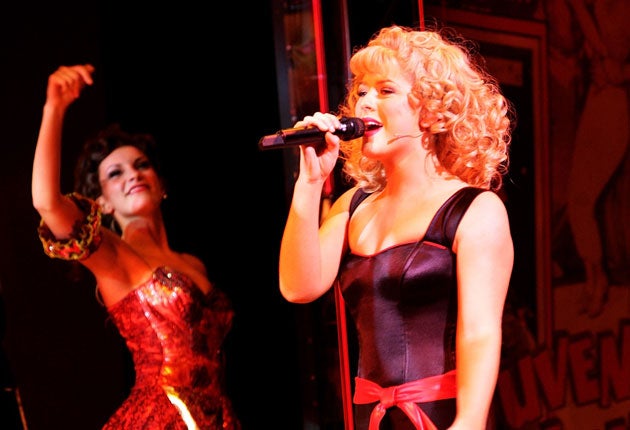West End producers 'are ripping off theatre-goers'
Practice of 'premium pricing' for popular shows hides the true cost of booking the best seats

West End producers are "ripping off" theatregoers with misleading information about top-priced seats for popular shows such as War Horse and Yes, Prime Minister, critics claim.
Industry insiders have accused Britain's biggest theatre groups, including Andrew Lloyd Webber's Really Useful Group and Cameron Mackintosh's Delfont Mackintosh, of introducing "premium" and even "superior" priced tickets to hide the true cost of the best seats in the house. The move risks tipping the cost of a West End theatre ticket above £100 and makes some plays more expensive to watch than musicals, even though plays are vastly cheaper to produce.
Anyone hoping to book for The Children's Hour, starring Keira Knightley and Mad Men's Elisabeth Moss, might think that £60 would secure the best seat in the house. That was the top of the price band unveiled by the Ambassador Theatre Group, the company behind the play, when booking opened. But irate early bookers found ATG was charging £75 for so-called "premium seats" in most of the stalls and first circle. Last month, ATG increased the top price yet further, introducing new "superior seats" for £85.
Mark Shenton, who writes for The Stage magazine, said the play's producers were "not being transparent about the top price for seats". He added: "Premium pricing is driven by greed. How can we be as expensive as Broadway when our costs are significantly lower? It's a very short-term view because it will turn going to the theatre into a luxury."
Richard Andrews, an independent theatre consultant who monitors ticket prices for the Society of London Theatres, called it "sharp practice" to pretend the top price is £60 when the best seats are £85. "It is cheating the public," he added. "The point is to rip people off. There is no justification. It's just a price rise."
The Children's Hour, which opens on 22 January, is not the only culprit. Premium seats for Yes, Prime Minister, at the Gielgud Theatre, part of the Delfont Mackintosh group, cost £95 over the Christmas period. And although it looks as though tickets for War Horse range from £49.50 to £15, the best "premium" seats are £85.
Premium-priced seats were first sold on Broadway for The Producers in 2001. The device, which has yet to extend outside the West End to regional theatres, started appearing in the UK in 2006 but has only recently become widespread. Subsidised theatres, such as the National, keep their prices much lower.
Andrew Girvan, deputy editor of What's On Stage magazine, said: "There's a limit to what the market will bear. It will be interesting to see if there's a psychological barrier." He said producers tended to charge more for shows with big stars, such as Moss and Knightley, but this wasn't necessarily to recoup a bigger wage bill. "Big-name stars attract bigger prices because producers think people will be willing to pay more to watch stars on stage, but the economics of it is not that simple," he added.
Damien Hewitt, who heads production marketing at ATG, defended premium pricing. "The West End has found there's a market for a consumer who wants to sit in the best seats in the house, which attract a premium, rather like on an aeroplane. You've only got so long to make money from a play. Tickets for The Children's Hour are in line with other premium seats at plays across the West End. In the end, it comes down to supply and demand. We're seeing healthy demand for premium seats."
The Society of London Theatres, which produces an annual report that includes attendance levels and box-office revenues, said that average ticket prices in the West End hit £35.40 in 2009, up from £24.79 in 2000. Between 2000 and 2007, total gross box-office revenue rose by 61 per cent to £470m, much faster than the 18 per cent growth in theatre attendances, which stood at 13.6 million in 2007.
Subscribe to Independent Premium to bookmark this article
Want to bookmark your favourite articles and stories to read or reference later? Start your Independent Premium subscription today.

Join our commenting forum
Join thought-provoking conversations, follow other Independent readers and see their replies